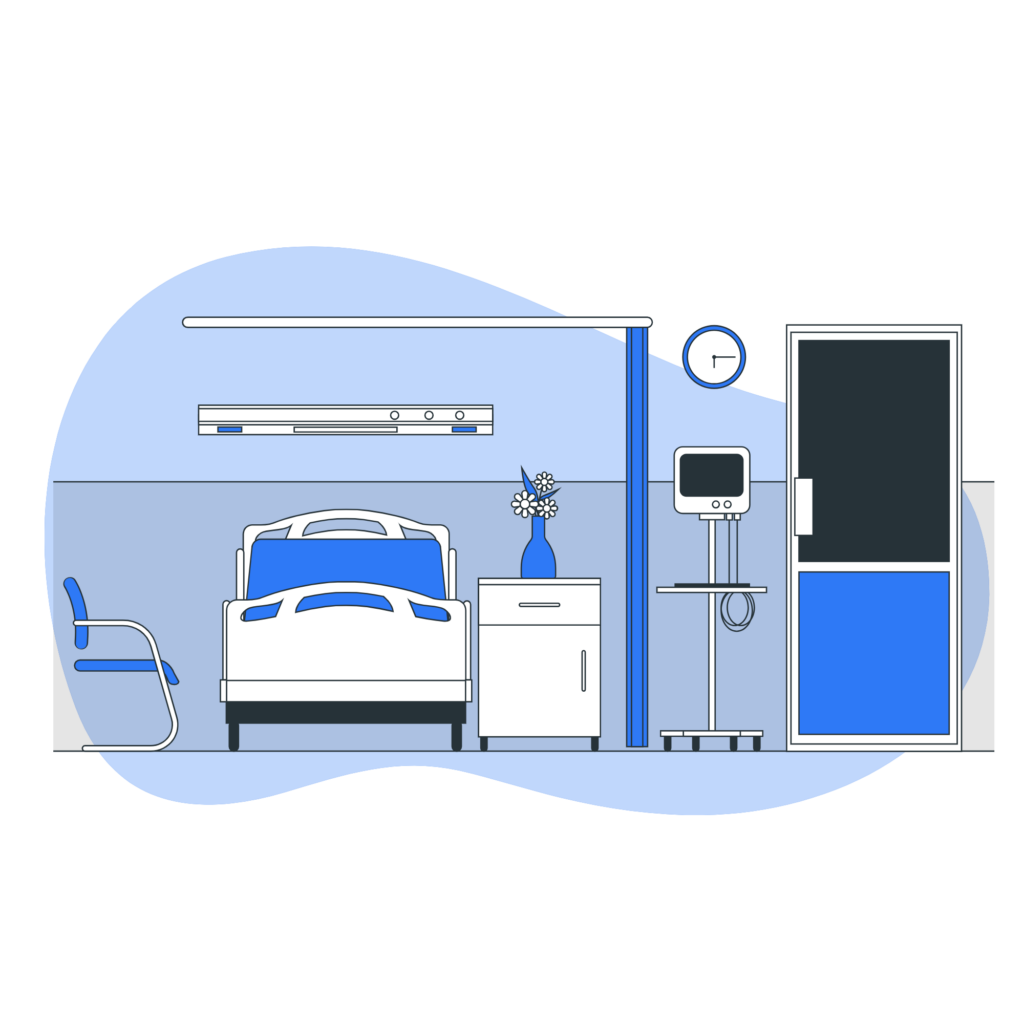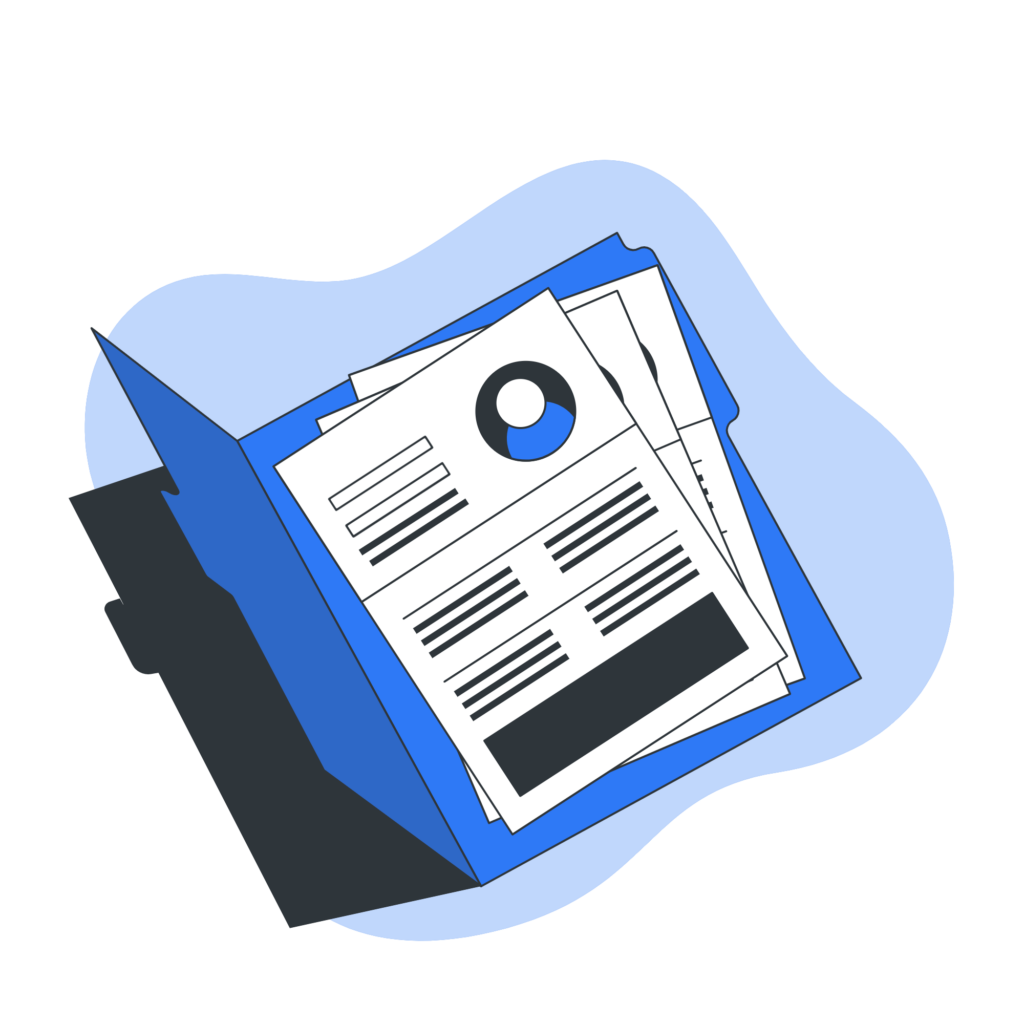Registered nursing in Florida has grown at a 4.3% annual rate over the past five years. As of fiscal year 2022-23, there were 404,463 registered nurses. And it isn’t just them. We have 185,197 certified nursing assistants and 78,977 licensed practical nurses contributing their expertise to the mix. Oh, and let us not overlook the 56,005 advanced practice registered nurses.
But it’s not all growth everywhere. Some areas are seeing a slight dip. Licensed practical nurse and certified nursing assistant positions are on the decline, although only slightly – 0.006% for LPNs and 0.26% for CNAs, respectively.
Nurses are leading the way in terms of improving their performance. Nursing accounts for 52.5% of all professional upgrades. That’s 14,002 nurses, including APRNs, LPNs, and RNs, who have advanced. Some have moved to autonomous practice APRNs or joined the Nurse Licensure Compact.
Speaking of autonomous practice, APRNs in Florida have an exciting path. If they meet certain criteria set by the bigwigs in the legislature, they can practice independently. We’re talking about primary care heavy-hitters like family medicine, pediatrics, and internal medicine. The Florida Board of Nursing rules define the scope, ensuring these A-APRNs are geared up to provide top-tier care.
Florida Board of Nursing Overview
The Florida Board of Nursing consists of 13 members, all of whom bring a unique set of expertise and opinions: seven certified nurses, all with at least four years of professional experience in nursing: advanced practice registered nurses, nurse executives, and nurse educators from approved programs.
But it’s not just about RNs. 3 licensed practical nurses, also with a minimum of four years of experience, contribute their practical insights to the mix. And then, to keep things balanced and grounded, there are 3 consumer members, ensuring they bring an outside perspective to the board’s decisions.
The Florida Board of Nursing meets every two months, usually kicking off the first week of every even month. These aren’t just ordinary meetings; they deal with anything from difficult disciplinary cases and application evaluations to delving into committee reports, debating rule changes, and making the important choices that keep the nursing profession running. The meetings are open to the public.
Florida Nursing Board Contacts
| [email protected] | |
| Phone Number | (850) 245-4125 |
| Address | 4052 Bald Cypress Way, Tallahassee, FL 32399, USA |
| Portal | https://floridasnursing.gov/ |

Florida State Board of Nursing Laws, Rules & Regulations
Nurses in Florida bear a critical obligation: to provide safe and competent treatment in a variety of healthcare settings. These expectations are set by the Florida Board of Nursing, and failing to satisfy them may result in the loss of one’s license to practice nursing in Florida. The Nurse Practice Act, created by the Florida Legislature, is the foundation of professional nursing. It not only establishes criteria for high-quality nursing care, but it also protects the health of people seeking it.
The story of Nurse Practice Acts in the U.S. is over a century old, all rooted in one goal: public safety. Each state and territory has its own Board of Nursing, empowered to craft rules that resonate specifically with the nursing profession, bringing clarity and direction. These rules are in line with the laws of the Nurse Practice Act. As nurses, it’s our job to stay in the loop with our state’s specific Act. Ignorance isn’t bliss here – not knowing the law won’t let you off the hook if issues arise.
Florida’s Nurse Practice Act is a two-part affair: one part focusing on general nursing practices and the other on Certified Nursing Assistants. Section 464.002 of the Act is clear-cut: meet the minimum requirements for safe nursing, or you’re out. It’s a strict, no-nonsense approach to keeping nursing standards high and patients safe.
Let’s break down some legal terms you’ll find in the Act:
- Advanced or Specialized Nursing Practice
In the course of professional nursing practice, these nurses conduct board-approved advanced-level nursing acts following post-basic specialty education, experience, and training. The advanced practice registered nurse may execute specified acts, such as nursing diagnosis, nursing treatment, medical evaluation and therapy, and prescription, under authorization and within the parameters of an approved supervision protocol.
- Clinical Preceptor
A licensed practical nurse or registered nurse who works in a training facility and acts as a clinical role model and resource for students enrolled in an approved program for a set length of time.
- Clinical Training
Direct interaction with patients receiving nursing treatment, or clinical experience in a simulated context relevant to direct nursing care delivery. The student has the opportunity to apply, integrate, and enhance skills and talents related to the principles of science and theory-based concepts.
- Nursing Diagnosis
Recognizing deviations based on inspections and evaluations of mental or physical states, signs and symptoms of sickness, behaviors, and treatment reactions to evaluate if the results are normal or abnormal.
- Nursing Treatment
Establishing and executing nursing regimens for comfort and care to avoid sickness and restore, educate, and maintain patients’ health.
- The Practice of Practical Nursing
Reflects actions taken to care for the wounded or those suffering from sickness, such as medicine delivery and therapies, to promote well-being, avoid illness, and preserve health. Practical nurses work under the direct supervision of a registered nurse and a licensed independent provider, such as a doctor, dentist, or podiatrist. A practical nurse is accountable for judgments made based on their nursing education and experience.
- The Practice of Professional Nursing
To execute acts of care for the injured or ill, extensive specialized knowledge, skills, and judgment are required, as well as the application of concepts from the biological, psychological, physical, and social sciences. A professional nurse gives therapy and medications as prescribed or approved by a registered practitioner who is permitted by state law to prescribe the drugs and therapies. Professional nurses supervise and educate other staff in the activities stated, such as drug delivery, processes, and the theory underlying the activity.
Board of Nursing Florida Examination Requirements
As stated in Section 464.008 of the Florida Statutes, the Florida Board of Nursing has established criteria to ensure that prospective nurses are prepared for the responsibilities that await them.
- Graduation from Florida-Endorsed Programs
The first step is graduation from a Florida-approved or recognized nursing program.
- ACEN or CCNE Accredited Programs
Another requirement is that applicants have completed programs approved by the Accreditation Commission for Education in Nursing (ACEN) or the Commission on Collegiate Nursing Education (CCNE).
- NCLEX Code-Affiliated Programs
Eligibility is validated for students of nursing education programs that have been formally acknowledged in their jurisdiction and have been assigned an NCLEX code by the National Council of State Boards of Nursing.
- Advanced Nursing Degree Holders
Individuals who have advanced nursing training with a Master of Science in Nursing (MSN) or higher degree from a program that has an NCSBN-issued NCLEX code meet the licensure criteria.
- International and Non-NCSBN Jurisdiction Graduates
Graduates of nursing programs outside of the NCSBN jurisdictions, including foreign and Puerto Rican institutions, have to prove that their education is comparable to Florida-approved programs.
- Canadian Registered Nurses
Canadian nurses who completed the Canadian Nurses Association Testing Service (CNATS) Examination after August 8, 1995, are required to take the NCLEX examination. However, people who completed the CNATS before this date and had satisfactory results may be eligible for endorsement. Canadian Licensed Practical Nurses must apply for the examination pathway unless they are currently licensed in another state or territory in the United States or have completed the NCLEX.
- Practical Nurse Examination Based on Equivalency (PNEQ)
Individuals who finished training in a registered nursing program equal to practical nursing education might take advantage of an alternate pathway. They may be eligible for the Practical Nurse test through the PNEQ route, giving a unique path to licensure.

Florida Nursing Board Application
The Medical Quality Assurance (MQA) has announced the successful implementation of an Enhanced Licensing Interface (ELI) for online applications, designed specifically for Registered Nurses (RN) and Licensed Practical Nurses (LPN). This technology significantly enhances the licensure procedure for examination and endorsement.
The nurse application process encompasses several key steps:
- Application and Initial Registration: Applicants must submit an application to the Florida Board of Nursing, together with the requisite fees, and register with Pearson VUE, the official testing provider.
- Fingerprinting Appointment: As part of the safety procedure, candidates must plan and conduct a fingerprinting procedure with a Livescan vendor.
- Application Review: After submitting all required documentation, an application professional will perform a thorough evaluation. More details may be required to complete the review.
- Eligibility Confirmation and Exam Registration: After completing the eligibility requirements, candidates will get an Eligibility letter with instructions for registration with Pearson VUE. Pearson VUE then simplifies the exam approval procedure.
- Issuance of License Post-Examination: Successful applicants can expect to get their initial license within 7-10 days of completing the licensing exam.
Candidates who fail to pass the exam must file a re-examination application. After three unsuccessful tries at the same level of test (RN, LPN), regardless of jurisdiction, the candidate must finish a remedial training course authorized by the Florida Nursing Board.
According to Florida law, initial applicants are assessed within 30 days. The MQA is presently processing applications effectively and within the specified period.
| Profession | Days to Process |
| Advanced Practice Registered Nurse (APRN) | 6-8 |
| Certified Nursing Assistant | 1-3 |
| Licensed Practical Nurse | 18-20 |
| Registered Nurse (RN) | 19-21 |
FL Board of Nursing Electronic Fingerprinting
All first licensing candidates must submit their fingerprints electronically to the Florida Department of Law Enforcement (FDLE) using a Livescan service provider. Your fingerprints will be given straight to FDLE, who will subsequently forward them to the Care Provider Background Screening Clearinghouse.
Remember that the FDLE and Clearinghouse will preserve your Livescan fingerprints. The days of submitting your old hard fingerprint cards directly to the Florida Board of Nursing are over. Everything must now be done electronically using a Livescan provider. There is one catch for candidates who do not live in Florida. You’ll need to first receive your prints on a hard card, then find a Livescan service that can convert and upload them online.
The Originating Agency Identification (ORI) number is extremely significant. It serves as a unique identifier for your fingerprint submission. If you make a mistake or fail to submit it to the service provider, the Florida Nursing Board will not get your findings.
Depending on what kind of nursing applicant you are, your ORI number will be different:
- CNA Applicants: Use ORI EDOH0380Z.
- LPN/RN Applicants: Your ORI is EDOH4420Z.
- APRN Applicants: Also EDOH4420Z.
- LPN/RN Looking for Multi-State Upgrade: Stick with EDOH4420Z.
These ORI numbers are super specific for a reason – they tell the background screening folks exactly why you’re being fingerprinted.

Florida BON Licensure by Endorsement Eligibility Requirements
There are two options for obtaining a Florida endorsement license, as specified in Section 464.009, F.S.
- Path 1: License in Another State or Territory
A current nurse’s license from a different jurisdiction in the United States allows you to get a license by endorsement. This should have been gained after finishing an accredited nursing program and completing the SBTPE or the NCLEX.
- Path 2: Active Nursing Practice
If you have been actively practicing in another state, jurisdiction, or U.S. territory for two of the previous three years and have a clean record (no criminal background or disciplinary measures against your license), you are also qualified.
If you have not practiced nursing in the previous five years, Florida requires you to complete a remedial course under Rule 64B9-3.0025, F.A.C. This phase guarantees that you are up to speed on the newest nursing care and practices before receiving your license.
Nurses who graduated from a non-NCSBN jurisdiction (like Puerto Rico) or an international program have an extra step. Your education needs to be evaluated to confirm it’s equivalent to an approved program. This could have been done during your initial licensure in another state. If your education wasn’t in English, you’ll also need to pass an English competency exam. Check the NON-NCSBN/International Grads section for more details on credential evaluators and English competency tests.
The application process encompasses 3 steps:
- Submit your application and payments to the Florida Board of Nursing.
- Schedule and carry out electronic fingerprint with a Livescan provider.
- Validate your current license and send it to the Florida Board of Nursing.
Once all of your materials have been submitted, an application professional will examine them. Remember that every application is assessed for completeness within 30 days of receipt.
FL BON Nurse Licensure Compact (NLC)
To upgrade a Florida nursing license for multistate privileges you need:
- A valid Florida license.
- Florida as your primary residence.
- No felony convictions or nursing-related misdemeanors.
- Not part of any impaired practitioners’ program.
- A social security number and passing the NCLEX.
- Updated Livescan results.
- International experts will undergo an independent credentials check and, if necessary, an English competence exam.
Applications are valid for one year. If it expires, you will have to submit a new one.
Florida Board of Nurses License Renewal
To practice lawfully, professionals who possess Florida Board of Nursing licenses must renew them biennially.
Licensed Practical Nurses (LPN): Current licenses will expire at midnight Eastern Standard Time on July 31, 2025.
Registered Nurses (RN) and Advanced Practice Registered Nurses (APRN): Renewals are organized as follows:
- Group 1: Expires midnight, April 30, 2024.
- Group 2: Expires midnight, July 31, 2024.
- Group 3: Expires midnight, April 30, 2025.
Note for APRNs: Renewing the Florida RN license is optional.
To reactivate your license, be prepared for additional fees and specific continuing education requirements. Failure to meet these will require reapplication and adherence to current standards and regulations. Those with Null and Void or Voluntarily Relinquished LPN licenses must reapply and meet contemporary requirements.
- If you’re renewing post-expiration and your status is Clear/Active or Clear/Inactive, expect a delinquency fee on top of the regular renewal fees.
For Delinquent/Active or Delinquent/Inactive licenses, renewal is possible before the deadline. Ensure the following are completed:
- If your license was Delinquent/Active or Delinquent/Inactive before the deadline and isn’t renewed, it will change to Null and Void status
Licensees on inactive status for over two consecutive renewal cycles may need to prove their competency to resume active practice, either through a special examination or other reactivation requirements.
Do not submit credentials of accomplishment to the Florida Board of Nursing. All CE credits must be submitted to the Department of Health via the CE tracking system located at www.cebroker.com.

Florida BON Continuing Education (CEU)
If you are certified by a healthcare specialist program authorized by the National Commission for Certifying Agencies or the Accreditation Board for Specialty Nursing Certification, you are exempt from regular CE requirements. Just make sure this is notified to the Department’s CE Broker system. Remember, however, that this exemption does not cover the necessary 2-hour Human Trafficking training.
If you have obtained your license by examination during the current biennium, you’re exempt from general CEU requirements for your first renewal. However, you still need to complete:
- 2 hours on Medical Error Prevention
- 2 hours on Florida Laws and Rules
- 2 hours on Recognizing Impairment in the Workplace
- 2 hours on Human Trafficking
- 1 hour on HIV/AIDS
If you were licensed by endorsement and passed the examination in another state during the current biennium, you are subject to the same exemptions and criteria as new license holders. If your first license was for fewer than 24 months, you must complete one CE hour for each month you had the license, covering the essential topics listed above.
If your initial Florida license was not for the entire two-year term, you must complete one CE hour for each month you have the license.
| Required Subject Area | Required Number of Hours | Important Information |
| General Hours | 16 | Approved by a state or national nursing CE accrediting organization. |
| Prevention of Medical Errors | 2 | Must be approved by the Florida Board of Nursing. |
| Florida Laws & Rules | 2 | Must be approved by the Florida Board of Nursing. |
| Recognizing Impairment in the Workplace | 2 | Board-approved, required every other renewal. |
| Human Trafficking | 2 | Meeting criteria outlined in S. 464.013, F. S. (Florida Board approval not necessary). |
| Domestic Violence | 2 | Board-approved, required every third biennium, in addition to the 24 hours for renewal. |
| HIV/AIDS | 1 | Board-approved, one-time requirement before the first renewal. |
Florida Nursing Board Complaints and Disciplinary Actions
The number of claims made against healthcare professionals in Florida increased significantly during the last fiscal year, hitting 45,352, one of the largest in previous years. Notably, registered nurses accounted for more than one-third of all complaints (30.3%). Of these, over 5,000 cases were found to have legal merit.
Here’s a brief on how the Florida Department of Health handles these complaints:
- Initial Review: Each complaint is reviewed to determine potential breaches of the practitioner’s individual practice act.
- Investigation: If there is suspicion of a violation, the case is probed further.
- Probable Cause Assessment: The Prosecution Services Unit investigates to establish whether there is adequate probable cause.
- Disciplinary Actions: If probable cause is proven, the case is sent to the appropriate board for disciplinary action. This might include a warning or a fee, as well as more severe sanctions such as limited practice, mandated remedial education, administrative expenses, probation, suspension, or even license revocation.
- Public Disclosure: When an administrative complaint is lodged, the matter becomes public after 10 days.
- Case Closure: If probable cause isn’t found, the case is closed and remains confidential.
Florida Board of Nursing License Verification
Verifying your licensure as a healthcare professional in Florida involves a clear set of steps.
- For LPN and RN
You can opt for licensure verification through Nursys, a comprehensive electronic system for quick verification. It’s crucial to remember that if your Florida license is no longer active, Nursys might not have your information.
- For APRN and CNA
Prepare a cashier’s check or money order of $25.00 for each verification. This fee is payable to the Board/Council you are seeking verification from.
- Common Steps
Along with your payment, you need to include specific details:
- The name and address where the verification should be sent.
- A completed ‘Verification of Licensure‘ order form.
- A completed ‘Non-Licensure Verification‘ order form if applicable.
The Division of Medical Quality Assurance processes licensure verifications typically within 10 days from receipt. It’s important to submit your request well before any deadline, as they cannot guarantee meeting the deadlines of other State Boards.
If you need a Florida license check, the Florida Board of Nursing makes it simple with its comprehensive online Florida license lookup tools. Just head over to ‘My Florida License’ website for a quick and easy Florida nursing license lookup. This valuable resource provides an efficient CNA license lookup, as well as a registered nurse license lookup, streamlining the verification process for employers and the public alike.
Whether you’re confirming credentials for an RN or looking up vital details with the Florida RN license lookup, you’ll find that the Florida Board of Nursing license lookup is designed for ease of use.
These procedures are designed to maintain the integrity and accuracy of licensure verification, which is an essential aspect of healthcare professionalism.



